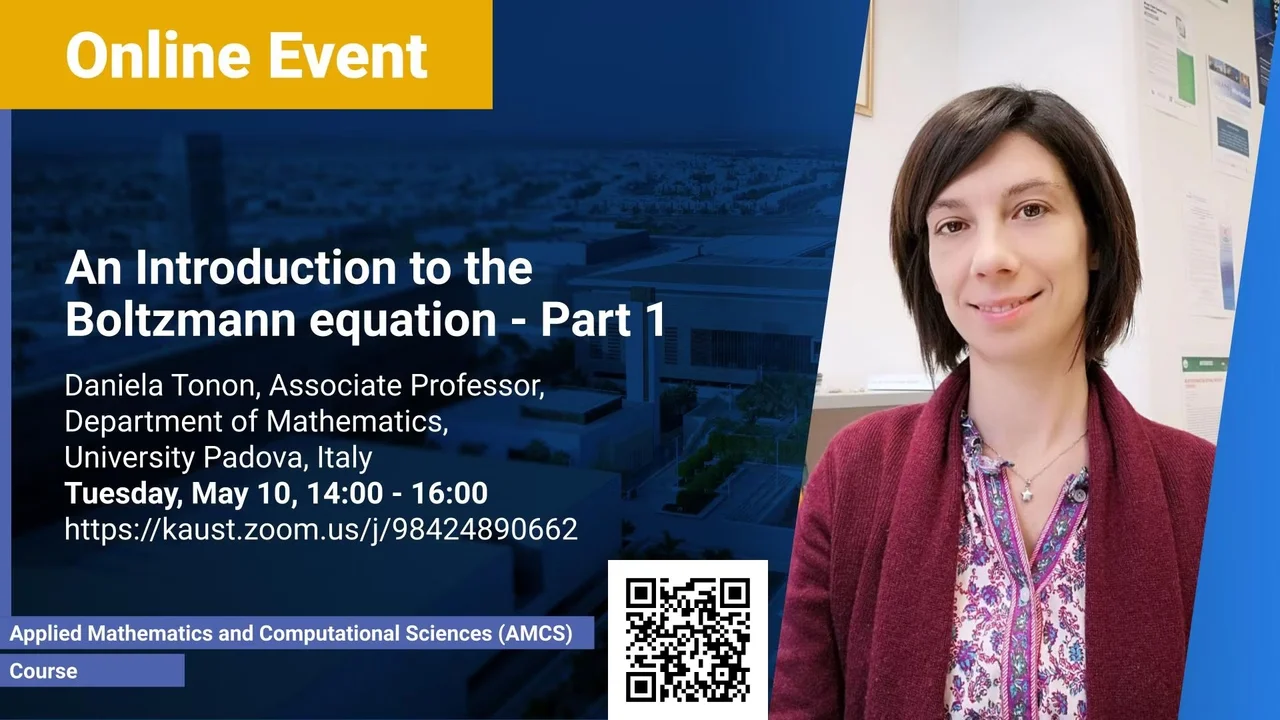
An Introduction to the Boltzmann equation - Part 1
- Prof. Daniela Tonon, Department of Mathematics, University of Padova, Italy
KAUST
In this course, we introduce the Boltzmann equation, i.e. the equation that describes the behavior of rarefied gases at a mesoscopic scale. This scale can be considered as in between the microscopic scale (where the gas is described as a set of a large number of particles) and the macroscopic one (where the gas is described as a continuum fluid). Starting from the classical free transport equation, we will describe the crucial role of the collisional operator that can be deduced from physical assumptions. In particular, we will focus on the formal derivation of the Boltzmann equation and on the techniques used to cope with its particular, highly singular, collisional operator, in the study of the Cauchy problem. We will conclude with the study of the Boltzmann equation in the more physically relevant case of bounded domains, considering several different boundary conditions such as in flow, specular reflection, bounce-back reflection and diffuse boundary conditions.
Overview
Abstract
In this course, we introduce the Boltzmann equation, i.e. the equation that describes the behavior of rarefied gases at a mesoscopic scale. This scale can be considered as in between the microscopic scale (where the gas is described as a set of a large number of particles) and the macroscopic one (where the gas is described as a continuum fluid). Starting from the classical free transport equation, we will describe the crucial role of the collisional operator that can be deduced from physical assumptions. In particular, we will focus on the formal derivation of the Boltzmann equation and on the techniques used to cope with its particular, highly singular, collisional operator, in the study of the Cauchy problem. We will conclude with the study of the Boltzmann equation in the more physically relevant case of bounded domains, considering several different boundary conditions such as in flow, specular reflection, bounce-back reflection and diffuse boundary conditions.
Brief Biography
Daniela Tonon obtained her Ph.D. at SISSA, Trieste, in 2011. After a postdoc at ICERM, Brown University, and one at Sorbonne University, she became Maître des Conférences at Paris Dauphine, PSL University, in 2013. Since December 2020, she is Associate Professor at the University of Padua. Her research interests are in Optimal Control theory, Mean Field Games and Kinetic theory. In particular, she is interested in the study of well posedness and regularity of partial differential equations such as Hamilton-Jacobi equations and Boltzmann equations.